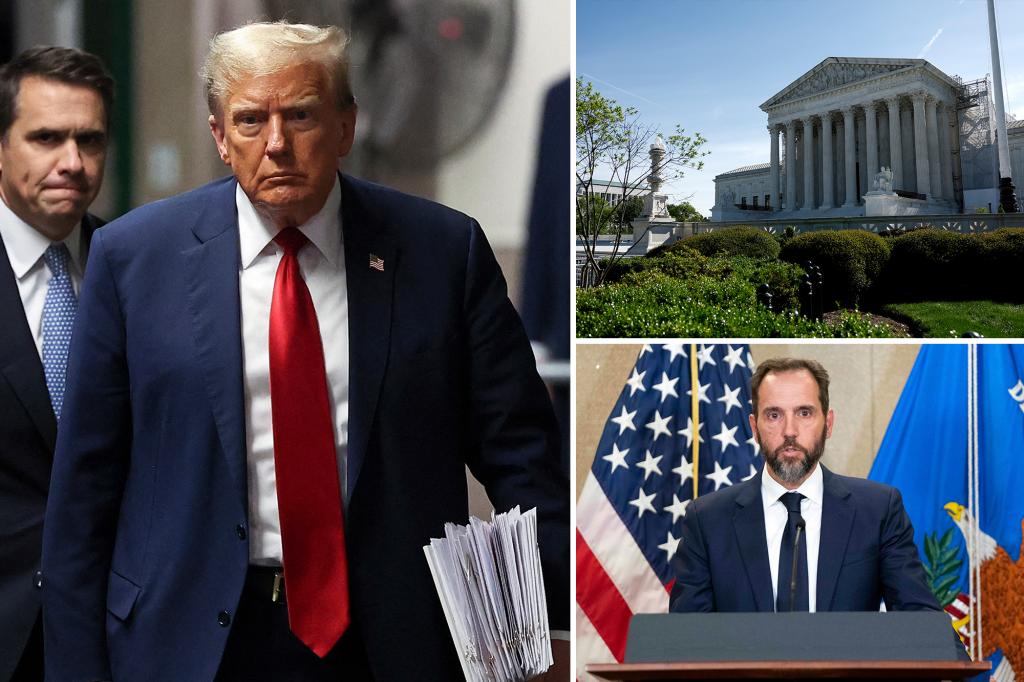The final case the Supreme Court justices are set to hear for their 2023-24 term involves former President Donald Trump arguing for immunity against prosecution over charges related to the 2020 election. Trump claims he is immune from prosecution on charges of unlawfully conspiring to remain in power after losing to Joe Biden, and warns that without presidential immunity, a president would be unable to properly function, putting the country in danger. The implications of this case are significant and could have long-lasting effects on the scope of presidential power for years to come.
The case originated from a criminal indictment lodged by special counsel Jack Smith against Trump in August of the previous year, accusing him of making false claims of voter fraud and conspiring to prevent the certification of Electoral College votes. Trump’s legal team argues that he was carrying out his duties as president to protect the election, and his actions were lawful. However, Smith firmly disputes this claim, stating that Trump’s alleged criminal scheme represents conduct that should not be immune from prosecution.
Lower courts have ruled against Trump’s immunity argument, with the US District Judge and the DC appeals court rejecting his claims. The former president’s ability to enjoy immunity from prosecution for official acts during his tenure in office is now being reviewed by the Supreme Court. Experts remain skeptical that Trump will prevail, given the wording of the query. However, Trump may have found ways to delay his prosecution in the hopes of avoiding trial before the next election, where he may have the power to halt the case altogether.
The Supreme Court’s decision not to consider Trump’s double jeopardy argument, which cited his impeachment by Congress in connection with the Capitol riot, indicates that this line of defense was unlikely to succeed. Trump’s claims about the nature of his Presidential immunity are unprecedented but not unique, as past cases involving former presidents have dealt with similar issues. Trump is the first former or sitting US president to face criminal charges in multiple jurisdictions, with numerous indictments against him.
The Supreme Court’s ruling on the immunity question could have far-reaching consequences on future presidential conduct and the ability to prosecute former presidents for official acts. Trump’s legal team argues that a lack of immunity would severely handicap future presidents, but experts like Renato Mariotti believe that presidents have lived under the potential for prosecution before without issue. The court may decide to qualify presidential immunity rather than completely absolve Trump, but the former president may still manage to avoid facing prosecution through various legal maneuvers.
As the case progresses, the timing of the Supreme Court’s ruling will be crucial, as it could determine whether the case proceeds before the next election. The possibility of Trump dropping the case if he regains power in 2025 highlights the importance of resolving the immunity question promptly. The case will establish a precedent for how former presidents can be held accountable for their actions during their time in office, and the outcome will shape the understanding of Presidential immunity and the limits of presidential power for generations to come.


